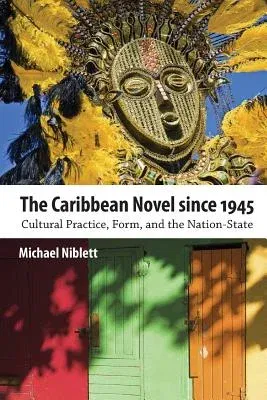The Caribbean Novel since 1945 offers a comparative analysis of fiction
from throughout pan-Caribbean, exploring the relationship between
literary form, cultural practice, and the nation-state. Engaging with
the historical and political impact of capitalist imperialism,
decolonization, class struggle, ethnic conflict, and gender relations,
Michael Niblett considers the ways in which Caribbean authors have
sought to rethink and renarrate the traumatic past and often problematic
postcolonial present of the region's peoples. This work pays particular
attention to how cultural practices, such as stickfighting and Carnival,
and religious rituals and beliefs, such as Vodou and Myal, have figured
in reshaping the novel form. Beginning with the post-WWII period, when
optimism surrounding the possibility of social and political change
peaked, The Caribbean Novel since 1945 interrogates the trajectories of
various national projects. The scope of Niblett's analysis is varied and
comprehensive, covering both critically acclaimed and lesser-known
authors from the Anglophone, Francophone, and Hispanophone traditions.
These include Jacques Roumain, Sam Selvon, Marie Chauvet, Luis Rafael
Sánchez, Earl Lovelace, Patrick Chamoiseau, Erna Brodber, Wilson Harris,
Shani Mootoo, Oonya Kempadoo, Ernest Moutoussamy, and Pedro Juan
Gutiérrez. Mixing detailed analysis of key texts with wider surveys of
significant trends, this book emphasizes the continuing significance of
representations of the nation-state to contemporary Caribbean
literature. Michael Niblett, Warwickshire, United Kingdom, is research
fellow at the Yesu Persaud Centre for Caribbean Studies at the
University of Warwick in Coventry, United Kingdom. He is the coeditor of
Perspectives on the Other America: Comparative Approaches to Caribbean
and Latin American Culture.


